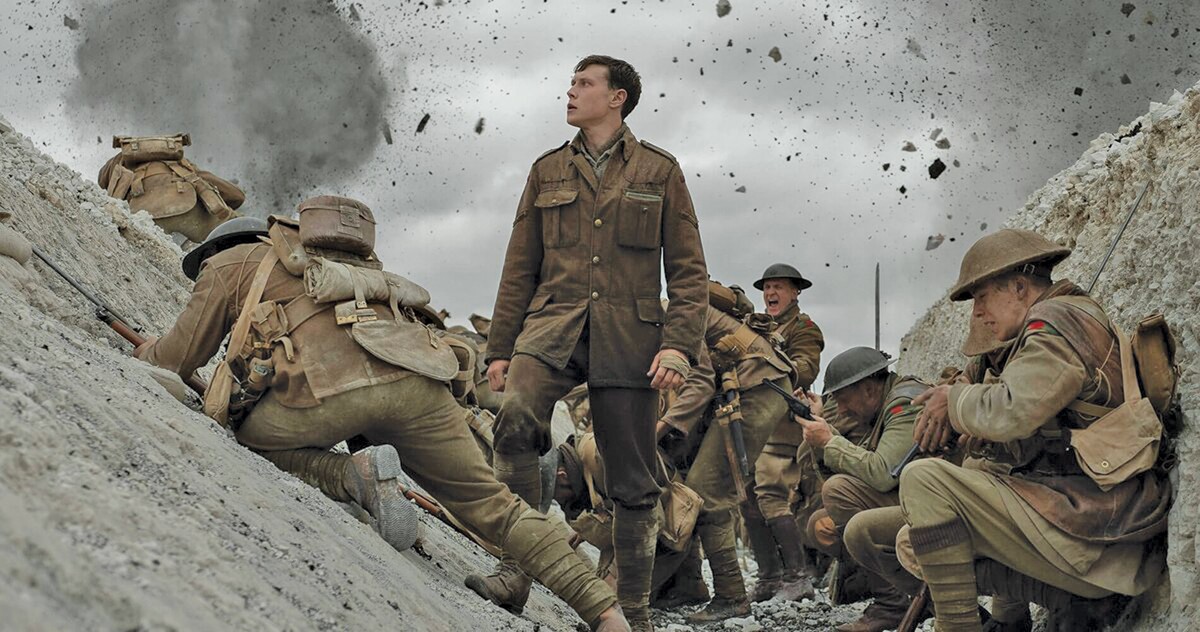Saving Private Ryan, Patton, Apocalypse Now, The Deer Hunter, The Hurt Locker, Inglourious Basterds, Dunkirk, Schindler's List and The Bridge on the River Kwai all have more than one thing in common. Not only are they all acclaimed war films — many of them Oscar nominees and Best Picture winners — they are also all not as good as 1917, the WWI masterpiece directed by Sam Mendes, which opens Friday at area theaters, and which took home two marquee Golden Globes this past Sunday (for Picture and Director).
1917 is a cinema marvel, every bit as breathtaking from a narrative perspective as it is from a technological one. It is the sort of film that renews one's faith in the art form, and the sort of story that majestically refutes the argument that all stories worth telling — certainly all war stories — have already been told.
The first thing to note about 1917 is its format. Cinematographer Roger Deakins and editor Lee Smith (Dunkirk) have shot and pieced together the film so it presents as a single continuous shot. Deakins is best known for his collaboration with the Coen Brothers (No Country for Old Men) and Denis Villeneuve (Blade Runner 2049), but he has worked with Mendes three times before, including on the 2012 James Bond film Skyfall. 1917 is his most striking achievement in a career of striking achievements. The preparation required for these long takes boggles the mind.
The story opens on two soldiers, Lance Cpl. Blake (Dean-Charles Chapman) and his friend Lance Cpl. Schofield (George MacKay), napping in the French countryside. When summoned for an assignment, Blake taps Schofield to help him out — he assumes it'll be something routine. It's anything but. In a trench bunker, a general (Colin Firth) tells Blake that a British company of 1,600 men, including Blake's older brother, is at that moment marching into an ambush, and that Blake and Schofield will have to deliver a message calling off the attack by the following morning to prevent a massacre. The territory they must traverse is too perilous to send any more than two men.
This is the opening three minutes of the film. What follows is a heart-pounding race against the clock as Blake and Schofield encounter obstacle after obstacle in their impossible task. It is known from the outset, of course, that the odds are very slim, but that Blake — who is said to be good with maps — might be sufficiently motivated to beat the odds, to save his brother.
What 1917 does so well is condemn the brutality of war while 1) not being a festival of gore itself, a la Hacksaw Ridge, and 2) honoring the heroism of individual soldiers, not military leadership. Both Blake and Schofield, when given the opportunity, don't think twice before performing acts of heroic kindness outside of their assigned duties.
As they approach their goal, we acutely feel their exhaustion and desperation. And why shouldn't we? We have been with them every step of the way. Andrew Scott, Mark Strong and Benedict Cumberbatch lend their distinguished services in single-scene roles — "Settle a bet," Scott's world-weary captain says in an early scene, "what day is it?" — but the film is nothing without Chapman and MacKay, whose friendship and sense of duty sustain them.
With the combination of its emotional power and visual achievements, I'm honestly having a difficult time refuting the notion I stumbled upon during and after my jaw-dropping viewing: that it's the greatest war film ever made.


